Last-Minute NYC Holiday Gift Guide 🎁
We’ve created a holiday gift guide with presents for the intrepid New Yorker that should arrive just in time—

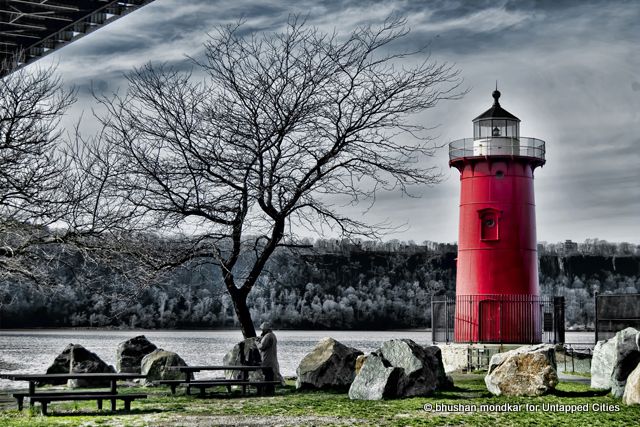
12 hours, 32 miles, 1,235 people and an unforgettable experience of hiking the entire perimeter of Manhattan. It’s called The Great Saunter–an annual urban walk that meanders through some twenty waterfront parks and promenades, several historic communities and innumerable moments of surprise and wonder. 2015 marks the thirtieth year of this extreme city walking adventure and Untapped Cities jumped right in, to explore the shores of Manhattan with several other enthusiasts amidst the blossom of Spring earlier this month.
First held in 1982 by conservationist Cy A. Adler, the Great Saunter was an initiative to raise awareness and push for the conservation of Manhattan’s coastline. This walk also helped to sow the seeds for his non-profit group, the Shorewalkers, who have been instrumental in promoting and preserving New York’s shores ever since. What began as an informal exploratory stroll in 1982 with just 30 people, has now become an annual pilgrimage for thousands. People of all age groups and demographics walk together celebrating the waterfront and gaining new insights about the towering city it encompasses.
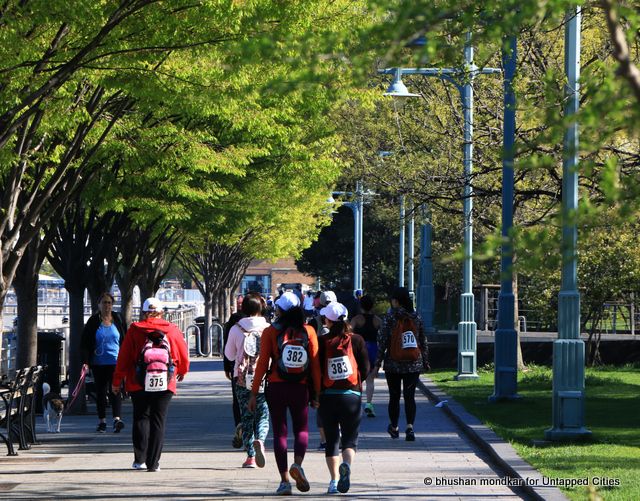
Beginning at the historic Fraunces Tavern, The Great Saunter circumnavigates the island clockwise to maximize shadows along the path. Wayfarers follow the Manhattan Waterfront Greenway heading north along the Hudson River up to Inwood Hill Park which marks the half-way point. The path then loops around and runs south along the Harlem River. After a few zig-zags through Harlem, the path rejoins the Greenway and continues along the East River all the way back to Fraunces Tavern where a well deserved post Saunter celebration follows for the ones who endured the entire 32 mile hike. This year there were 618 persevering champions.
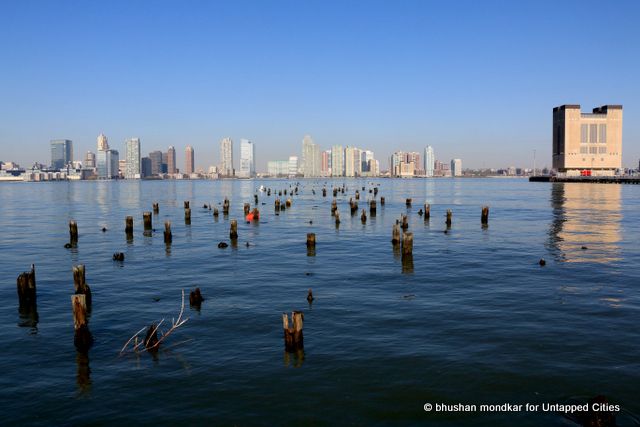
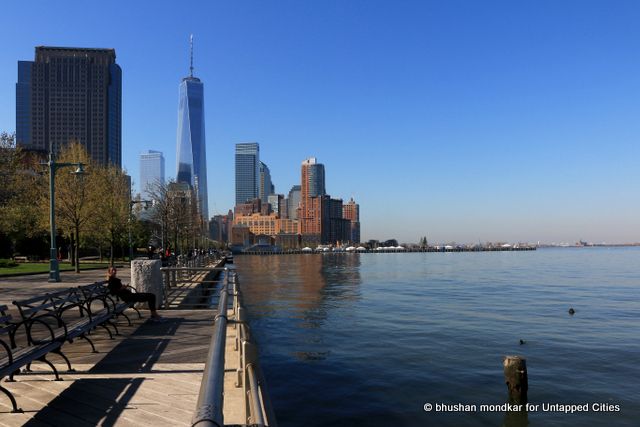
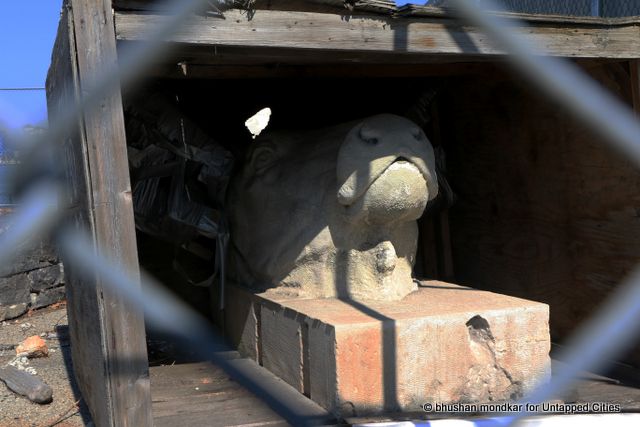
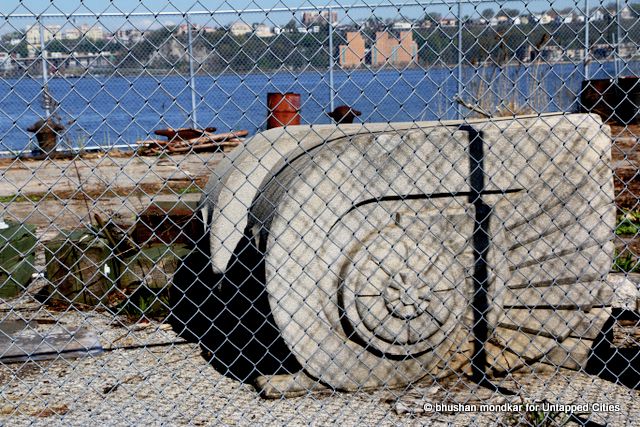
But sauntering along New York City’s shoreline wasn’t always this easy, as we learned from event coordinators Sid King and Meredith Vachon. From hiking along active railroad freight paths of Penn Central Yards to the wilderness near the George Washington Bridge, the shoreline that Mr. Adler and his fellow Shorewalkers walked 30 years ago was completely different from the lush parks and meandering paths that grace it today. In the early ’80s, the paths were often unsafe and illegal, with several blocked zones, forcing the handful of daring hikers to trespass through homeless camps and dirt paths along the deteriorating waterfront.
The real estate boom on the Westside in the 1980s and the city’s initiative to rejuvenate a crumbling industrial waterfront through the 1990s led to a gradual transformation, making the waterfront more accessible. Throughout the past three decades, the Great Saunter has witnessed this transformation first hand, one year at a time. Gone are the homeless bedding sites and piles of broken debris. The temporary beach that once lined the landfills of Battery Park City is now a hard edged promenade surrounding the towering residences. The massive Fulton Fish Market was also blurred out in 2005, opening up the waterfront near the Brooklyn Bridge for all New Yorkers. Abandoned buildings and broken piers were all redesigned as public parks and weaved into one continuous walkway along the Hudson, complete with restrooms, cafes and world class recreational amenities.
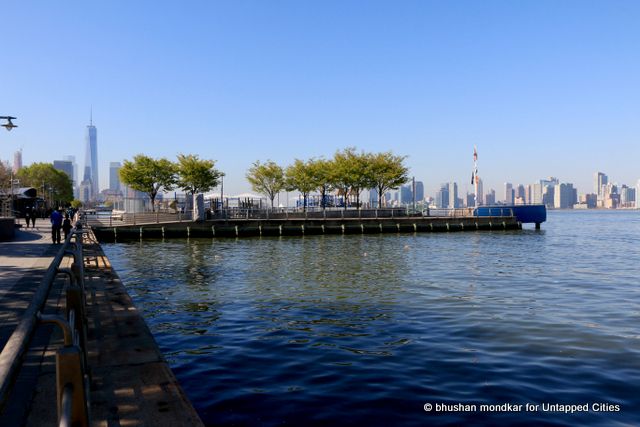
Today, the transformation continues, as the focus now shifts towards developing the Eastside Greenway for better access to the East River. In the wake of devastating storms such as hurricane Sandy, the next wave of development will also include a fortified park system around lower Manhattan called the Dryline, meant to protect the city from future storm surges. And in spite of this ever changing character of the city, timeless views of the Statue of Liberty, New York’s famous bridges and the little Red Light House among others, makes the experience of exploring Manhattan’s shores at 3 miles an hour, the Greatest Saunter of its kind.
Here are some more moments we experienced during our saunter along the Hudson:
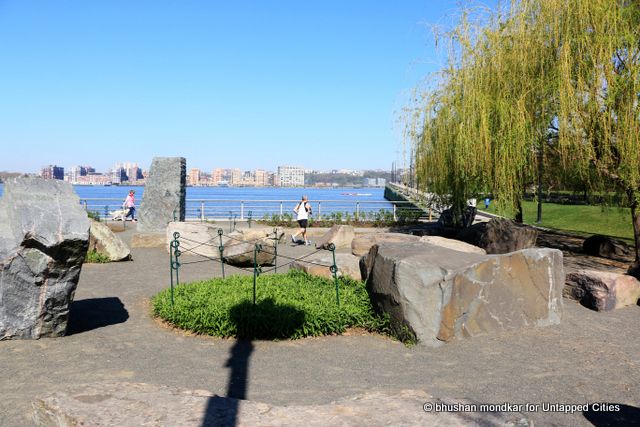
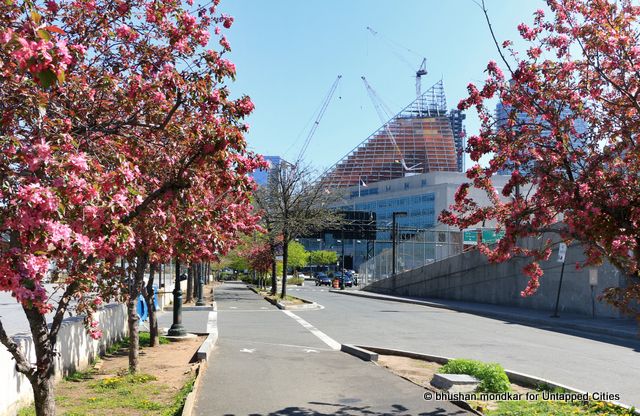
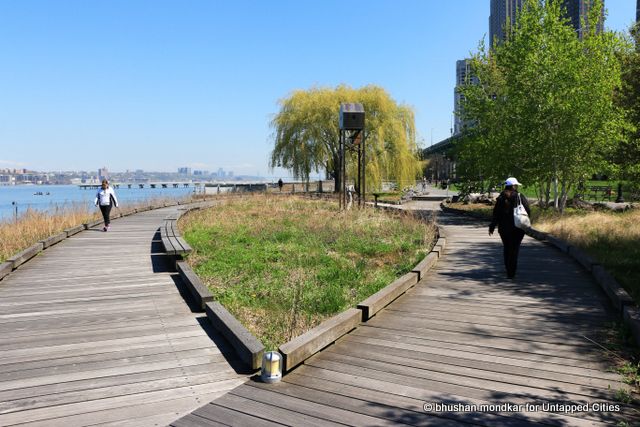
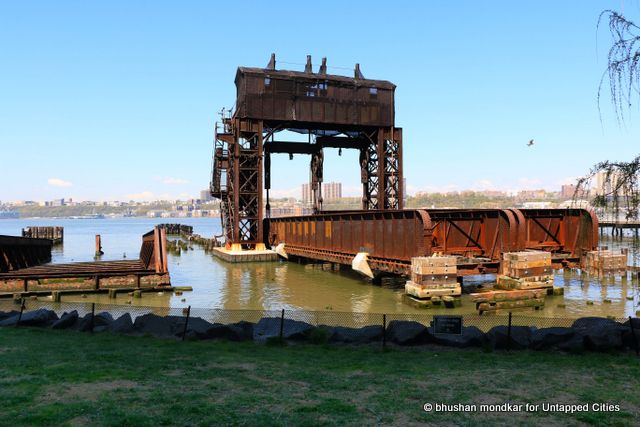
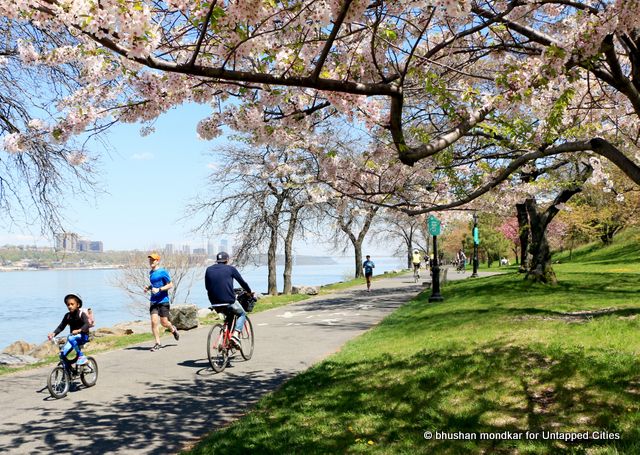
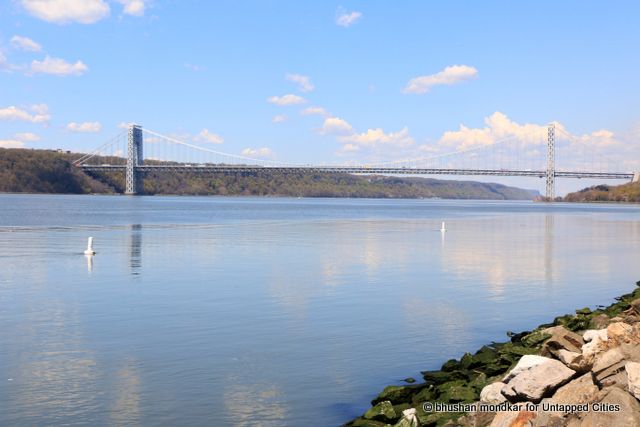
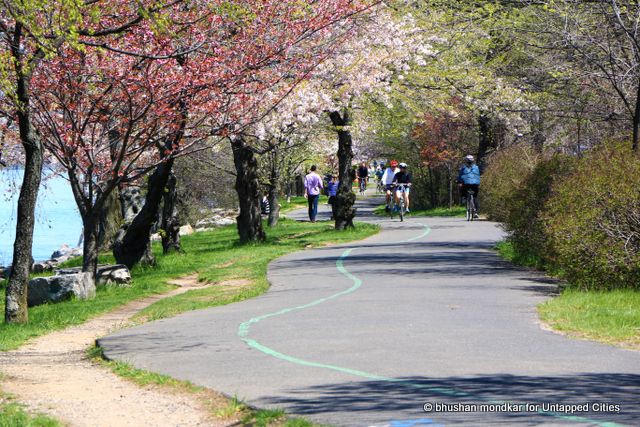

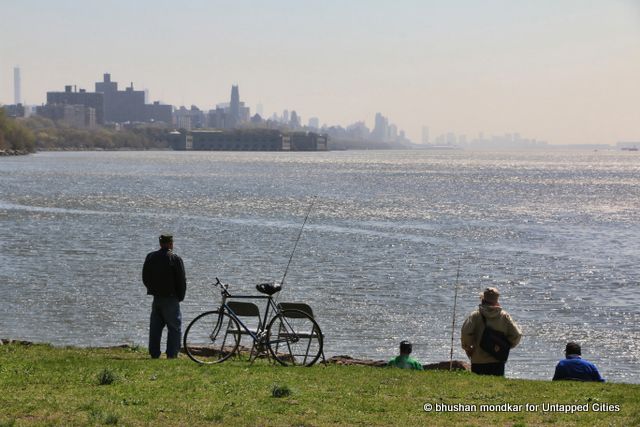
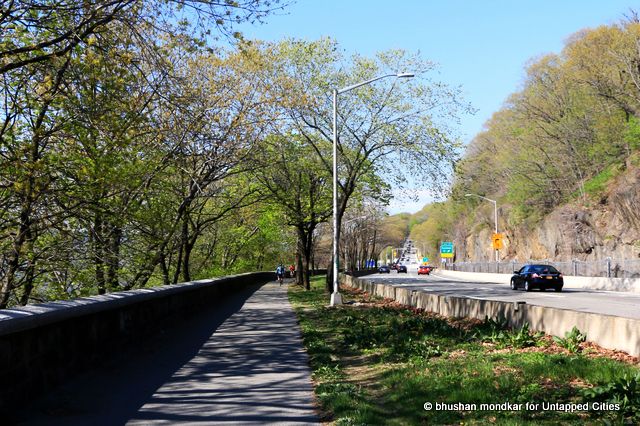
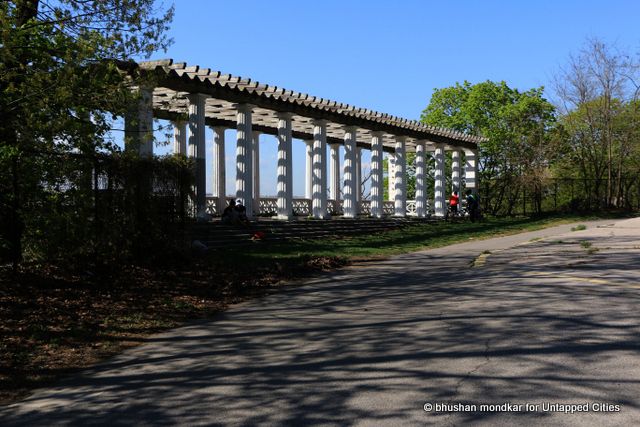
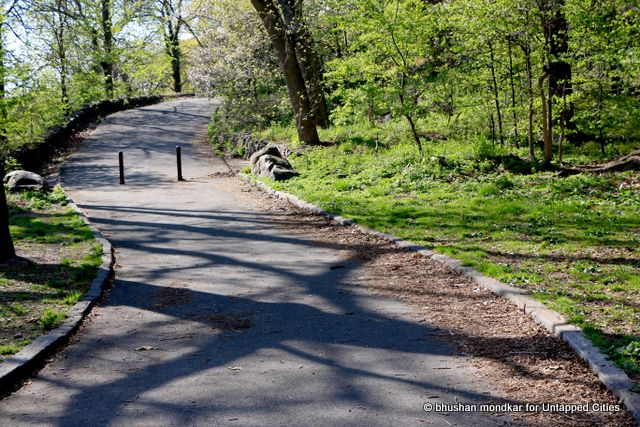
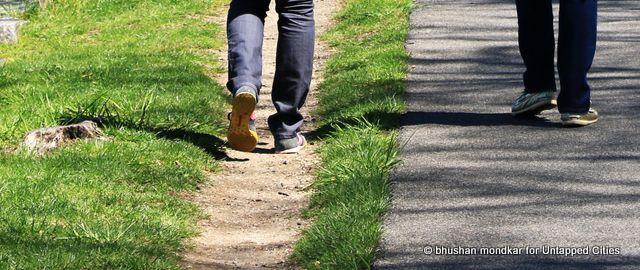
This article was written in part by Catherine Mondkar. Get in touch with the authors at @bhushan_NYC and @catherine2m
Subscribe to our newsletter